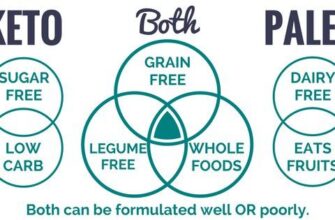We`ve all been there: a crowded elevator, a bustling public space, and suddenly, an unmistakable scent fills the air. It`s not always pleasant, and our first instinct might be to reach for a handkerchief or discreetly reapply deodorant. Yet, what if these often-unwelcome emanations are more than just a sign of neglected hygiene? What if they are, in fact, a sophisticated, albeit sometimes pungent, communication system from our own bodies, whispering tales of our health? Scientists are increasingly discovering that our unique body odor acts as a surprisingly effective diagnostic tool, revealing everything from stress levels to the onset of serious diseases.
The concept of using scent for diagnosis isn`t new. Long before the advent of modern medical technology, physicians would routinely use their sense of smell, even sniffing patients` urine, to discern underlying ailments. It was a crude, perhaps even unsavory, practice by today`s sterile standards, but it highlights a fundamental truth: the human body emits a complex array of volatile organic compounds, and changes in these compounds can signal physiological shifts. As Dr. Bruce Kimball, a scent expert from the Monell Chemical Senses Center, notes, “It has long been recognized that various diseases change body odors.” Indeed, our very survival might have honed our ability to detect these subtle, vital cues, much like we learned to identify spoiled food.
- The Olfactory Spectrum: When Scents Signal Sickness
- The Ale-Like Warning: Tuberculosis
- The Unsettling Aroma: Kidney Failure and Trimethylaminuria
- A Sweet Deception: Diabetes and the Scent of Ketones
- The Stress Scent: A Primal Response
- Dietary Whispers: You Are What You Eat (and Smell)
- The Olfactory Oracle: Parkinson`s Disease and Super-Smellers
The Olfactory Spectrum: When Scents Signal Sickness
While the ubiquitous marketing of deodorants and perfumes might suggest otherwise, masking our natural scent might mean missing out on some crucial self-diagnosis. Let`s explore some of the more distinct olfactory alerts our bodies, and sometimes those around us, can pick up.
The Ale-Like Warning: Tuberculosis
Imagine catching a whiff of stale beer from someone, even in a perfectly sober environment. This particular aroma, often described alongside notes of “wet cardboard” or brine emanating from the skin, can be a tell-tale sign of a tuberculosis infection. The bacteria responsible for this lung-afflicting disease produce strong, distinct compounds. As they proliferate within the respiratory system, these odorous metabolites become detectable, often most intensely in the breath, but sometimes subtly from the skin. Professor Perdita Barran, a scent researcher at the University of Manchester, posits that our ability to detect such infections likely evolved as a survival mechanism.
The Unsettling Aroma: Kidney Failure and Trimethylaminuria
Should one`s body odor take on a fishy or urine-like character, it warrants immediate attention. These are critical indicators of potentially severe kidney disease. Our kidneys are the body`s meticulous filtration system, diligently removing harmful toxins and chemical byproducts from our blood, which are then expelled in urine. When kidney function falters, these hazardous substances accumulate in the bloodstream. As we perspire, some of these chemicals are released onto the skin, where they evaporate, creating a distinctly unpleasant and alarming scent.
In rarer instances, a strong fishy odor might point to trimethylaminuria, a genetic disorder. Individuals with this condition lack the enzyme necessary to break down a chemical compound called trimethylamine. Consequently, this compound is released through sweat, breath, and urine, producing an odor often likened to rotten fish, eggs, or even garbage.
A Sweet Deception: Diabetes and the Scent of Ketones
Paradoxically, a sweet, fruity scent, sometimes reminiscent of “old fruit vase” or sugar, emanating from a person`s breath can be a deeply concerning sign. This distinct sweetness is a strong indicator of critically low insulin levels, often associated with undiagnosed Type 1 Diabetes. When the body lacks sufficient insulin – the hormone vital for converting sugar into energy – it resorts to breaking down fat as an alternative energy source. This metabolic shift produces byproducts called ketones, which have a characteristically sweet smell that humans are quite adept at detecting. This process also increases the acidity of the blood, a condition known as diabetic ketoacidosis, which can be life-threatening. Paramedics, for instance, are trained to detect this specific odor in individuals who have collapsed, as it`s a clear sign of hyperglycemia.
The Stress Scent: A Primal Response
Most of us have experienced it: that particularly potent body odor after a high-stress situation, be it a frantic dash or a nerve-wracking presentation. It turns out, stress sweat genuinely smells worse than regular exercise sweat. Our bodies house millions of sweat glands. While most are eccrine glands, responsible for cooling us down, stress activates a second type: the apocrine glands. These are concentrated in areas like the armpits and release sweat rich in proteins and fatty substances (lipids). When these nutrient-dense secretions meet the skin`s resident microbes, it creates a veritable feast. The volatile chemical compounds produced by these bacteria as they feed and multiply are what give stress-induced perspiration its signature sharp and often unpleasant odor. As Dr. Kimball reminds us, “Our scent isn’t simply the result of our own metabolism. We sustain millions of microbes, and they too can react to changes in our metabolism.”
Dietary Whispers: You Are What You Eat (and Smell)
Sometimes, the explanation for a peculiar body odor is refreshingly simple, though perhaps less glamorous. Foods rich in volatile chemical compounds, such as garlic, onions, or strong spices, can directly influence our scent. The very chemicals that give these ingredients their distinctive flavors can linger in our system, eventually being released through our sweat. So, if your dinner was particularly aromatic, don`t be surprised if its echoes follow you for a while.
The Olfactory Oracle: Parkinson`s Disease and Super-Smellers
Perhaps the most extraordinary demonstration of scent as a diagnostic tool comes from the realm of Parkinson`s disease. A select few individuals, dubbed “super-smellers,” possess an almost unbelievable ability to detect Parkinson`s purely by scent, often years before a clinical diagnosis. The most famous case is Joy Milne, a retired nurse from Scotland, who claimed she could smell Parkinson`s. Scientists put her abilities to the test, presenting her with shirts worn by Parkinson`s patients and control subjects. Not only did she correctly identify all the Parkinson`s shirts, but she also identified a shirt from a control subject who was diagnosed with the disease less than a year later. Milne describes the Parkinson`s scent as a musky, greasy odor that permeates clothing and fabrics. Professor Barran confirms that this unique odor is often strongest when a patient`s symptoms are at their peak, or when medication isn`t fully effective.
While Joy Milne`s heightened sense of smell is due to a rare condition called hereditary hyperosmia, her case underscores the immense potential. Imagine a world where a simple sniff test could provide early warnings for debilitating diseases. It seems our primitive sense of smell, often overshadowed by sight and hearing, harbors a profound intelligence.
In an age where we often strive to control and conceal our natural bodily signals, the humble realm of body odor offers a fascinating counter-narrative. Far from being merely a matter of hygiene, our personal scent is a complex symphony of biochemical processes, capable of broadcasting vital information about our internal state. Paying closer attention to these subtle olfactory shifts, while certainly no substitute for professional medical advice, could empower us with a deeper understanding of our own health, perhaps even prompting earlier interventions. The next time you catch an unusual scent, remember: your body might just be trying to tell you something important.









